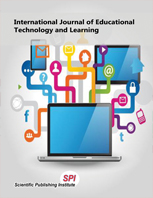A Survey of Dormitory Vietnamese University Students’ Lifestyle
DOI:
https://doi.org/10.55217/101.v12i2.518Keywords:
Cultural life, Students, Boarding schools.Abstract
The research is conducted to explore the reality of cultural life of Vietnamese boarding students at a public university in Ho Chi Minh City, Vietnam. Thereby, the authors made recommendations for a proper cultural life in the educational setting, which helped to enhance the living and studying environment for boarders. A 73-item questionnaire for assessing the present state of boarders was delivered to 638 students who were living in a few dormitories in the city. The question items are about learning behaviours (20 items), living habits (22 items), communication habits (21 things), and relationships (10 items). The results indicated that boarding students are serious about obeying school rules, but they are uninterested in studying activities. They are also disciplined and participate well in mandatory activities, but do not actively get involved in community volunteer activities and spend little time on morning exercises. Furthermore, students at boarding schools communicate in ways that are consistent with the social trends, and their romantic relationships are within acceptable bounds. In addition, their family relationships are quite secure; boarders are frequently proud of their parents' profession and adhere to the school's policies. Based on legal foundation, practical basis, norms, consultation with experts, and student feedback, 27 contents have been chosen to establish a cultural life for boarding students.


